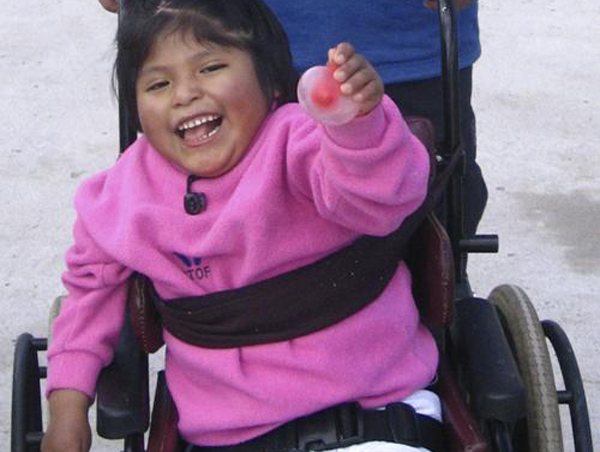Playtime is dying out – 71% of adults played outside as a child, compared with the 21% today. Increasingly, parents are concerned about their children playing outside unsupervised, and over half of children are expressly forbidden from doing so.
Children are supposed to get an hour of exercise a day, but this is being overrun by playing on the Xbox or watching TV at home. When it comes to disabled children, studies say that only one in ten exercise for more than 90 minutes each week. It’s predicted that in 2050, two thirds of children will be not just overweight but obese. With a health crisis on our hands, it’s key that children are encouraged to play outdoors – all children.

In the UK, it is estimated that there are 770,000 disabled children, the majority of which are consistently left out of play or physical activities. Exercise and play are crucial to a child’s mental and physical development; for a disabled child this can be even more beneficial, so they shouldn’t be excluded. It’s hard to be different, and participating in group play activities can stimulate friendships, overcome social barriers, and improve self-esteem.
Medical Attention
If you are concerned about your child’s disability or illness interfering with their physical activity, discuss with a doctor the options available for your child. You need only look at this year’s Paralympic Games to see how far your child can go without overprotection. Who knows, maybe they’ll be an athlete themselves one day!
Suggestions For Disabilities
You know your child’s strengths, so stop focusing on their limitations and improve their self-confidence. The majority of kids can partake in some form of physical activity, no matter how severe their disability may be.
Exercise can often lessen the symptoms of disabilities such as Juvenile Arthritis (JA) and asthma. Sufferers of Attention Deficit Disorder (ADD) can benefit from the focus and discipline of martial arts. For wheelchair-bound children, top end hand cycles are an independent and calorie-burning alternative to cycling.
Socialisation
Participating in group sports is one of the fastest ways to make friends and cultivate feelings of inclusion within a team. Just because your child has a disability doesn’t mean they shouldn’t partake in group socialisation too. Some organised groups offer activities for children with special needs and if there isn’t a team in your area, it’s the perfect opportunity to create one.
Keep Going!
Every child should have the right to play and leisure. Disabilities can often be frustrating for children, when they realise that they can’t do what other kids can, but everyone has their limitations. Giving a disabled child an opportunity to develop their strengths and improve where they are weak builds character and develops health.
As their parent you want them to do their best – there will be bad days – but you have to support them through it. Your child may be reluctant to exercise at first, but with a little determination, you may find that they accept it and even look forward to exercise.
This article was submitted by Francesca, a British blogger with an interest in health and fitness. She writes on behalf of Allabilitycycling.com.
Disabled Children And Physical Exercise

